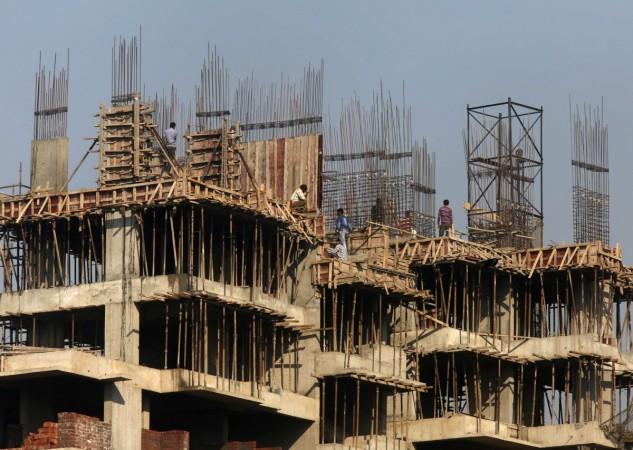
India's real estate sector, sitting on a huge pile of inventory, is looking at the Union Budget 2016-2017 with hope that it would provide some clarity on the dividend distribution tax (DDT) that may lead to investments from retail and institutional investors.
The DDT, currently at 15 percent, makes real estate investment trusts (REITs) unviable, according to Amit Oberoi, head valuation and advisory at Colliers International India.
"After deducting from the rental and other revenue streams, the operating cost, trustee and management fees, and then the DDT as well, there is little return left to make REITs a viable option for the retail or institutional investor," he told International Business Times.
"This leaves the REIT earnings dependent on rental appreciation in the underlying properties, which is contrary to the fundamental principal of REITs being a stable and predictable earner," he added.
Market regulator Sebi had given approval to REITs in September 2014.
Surendra Hiranandani, chairman and managing director, House of Hiranandani, is of the view that removing the DDT would pave the way for listing of REITs.
"There hasn't been a single REIT listing in India since its inception and we attribute this to the existence of DDT (currently 15%). Removal of DDT (tax levied on the dividend paid to investors) will result in a rush of investment in REITs and this could prove to be decisive for the sector," he said in a statement.
Adding to the views of Hiranandani, Anuj Puri, chairman and country head, JLL India, also said that developers and other asset holders need the government to do away with it (DDT) in the Budget 2016.
Further, he also wants extended financial protection to buyers who are currently at a disadvantage if the construction is delayed.
"The Union Budget should pay specific heed to this pressing need. On purchase into an under-construction property, buyers can only claim tax benefits of Rs. 2 lakh after possession if construction is completed within three years. The benefits reduce to Rs. 30,000 if the builder delays construction beyond this -- and they pay higher interest."
He suggested tax concessions on house insurance premiums to encourage end users to insure their homes.
Hiranandani added further that granting industry status, a long pending demand of the real estate sector, will enable developers to avail of finances at cheaper rates from financial institutions.
Oberoi said that the Central government needs to remove the DDT while state governments need to bring down stamp duty and registration costs.








